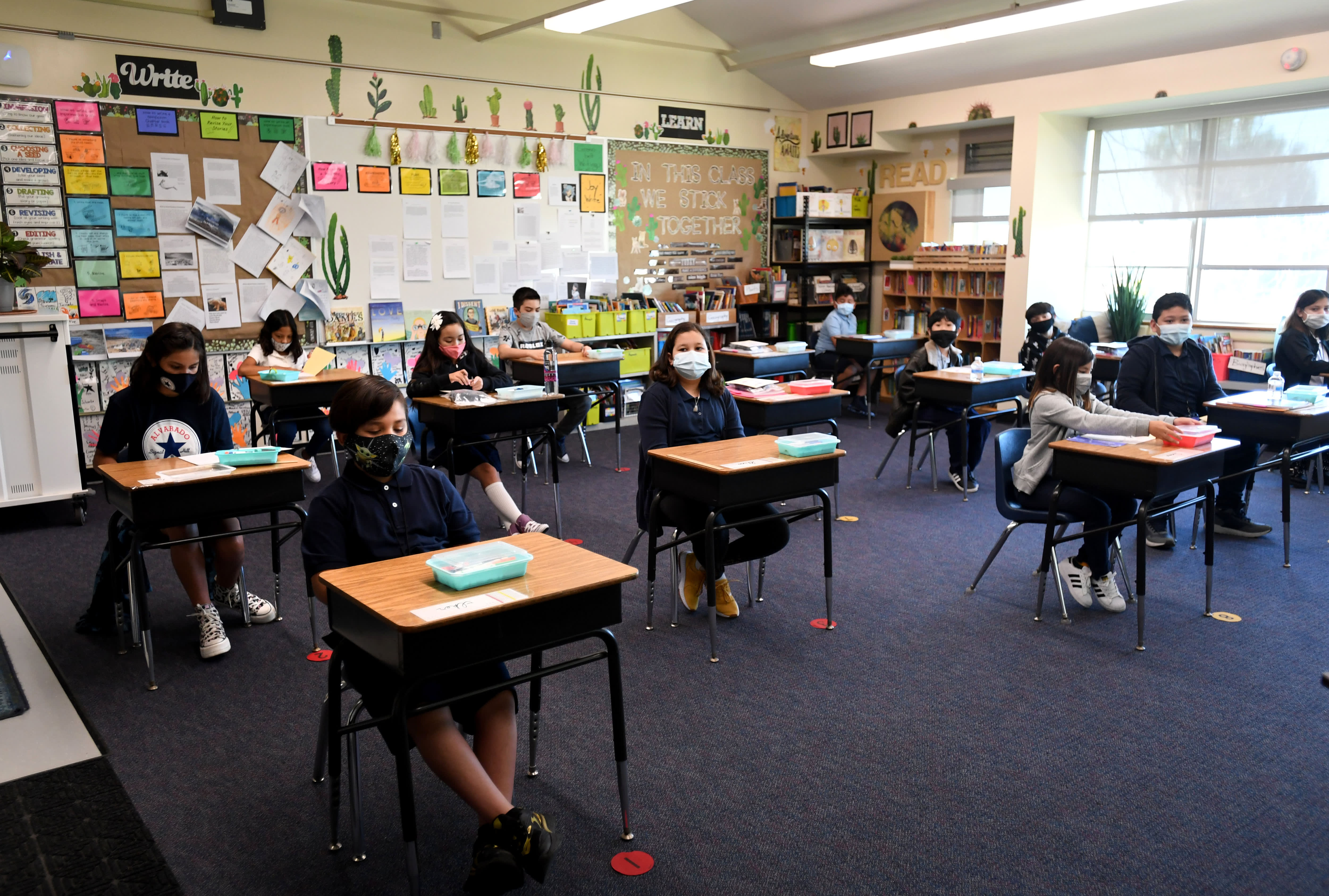During Covid, more families switch to private school from public education

Until the pandemic, many families in the U.S. ruled out a private-school education because of the cost.
Yet as the coronavirus crisis raged on, parents increasingly sought out schools that were fully in-person rather than remote — and, for many, that meant switching to an independent institution, regardless the price tag.
"I am seeing unprecedented interest from the public-school community seeking entrance into private schools," said Emily Glickman, the president of Abacus Guide Educational Consulting in New York.
Reports of significant academic learning loss in school districts across the country underscored concerns about the toll virtual learning has had on education at every level.
At the same time, private schools, which generally have larger campuses, smaller classes and greater autonomy, often demonstrated more flexibility when it came to reopening.
As a result, families were able to send their children to school in person, alleviating the burden on parents and, in many cases, allowing them to go to work or pursue employment opportunities from home.
More from Personal Finance:
Will your child’s school mandate Covid vaccinations?
Biden proposes free school lunch this summer
Study: Virtual school resulted in 'significant' learning loss
About 41% of parents were more likely to prefer a private education for their children post-pandemic, according to a recent survey by EdChoice, although actual enrollment patterns did not necessarily align with their preferences.
Of course, private school comes at a price. Overall, the average cost of tuition at private schools across all grades is $26,866 a year, according to the National Association of Independent Schools.
Pre-pandemic, private school enrollment had been on a slow decline. Currently, roughly 50.8 million students are enrolled in public schools, compared to 5.8 million students in private schools, according to the Department of Education.
Now, families are finding that financial aid provides access to schools they otherwise couldn't afford.
Just over a quarter of all families receive financial aid, the National Association of Independent Schools said, and, in 2020-21, the average aid package per student was $19,240, up from $18,717 last year and $17,727 in 2018-19.
"There's definitely increased interest in financial aid," said Myra McGovern, a spokeswoman for the organization.
In response, "schools that used up most of their financial aid earlier in the year are now considering ways to provide more," she said.
Some states have even stepped it up to increase access. In New Hampshire, for example, Republican Gov. Chris Sununu announced that he will direct $1.5 million in federal CARES Act funding to organizations that give scholarships to private elementary, middle and high schools.
Florida's Step Up for Students has been providing private-school scholarships for low-income Florida families. In April, the state passed legislation to raise the income eligibility level for the 2021-22 school year to nearly $100,000 for a family of four.
Many families make the assumption that a private school is beyond their means.
Janet Wolfe
head of school at the Ideal School in Manhattan
"Many families make the assumption that a private school is beyond their means," said Janet Wolfe, head of school at the Ideal School in Manhattan, where tuition for the 2021-22 school year is just under $50,000.
Ideal recently launched a new scholarship program for first-time students at a 75% tuition reduction. One of the program goals is to include students from an array of socioeconomic backgrounds, Wolfe said.
"We are excited to increase our outreach to the community and provide more pathways to an independent school education particularly at this challenging time."
Subscribe to CNBC on YouTube.
Read More
Source

No comments